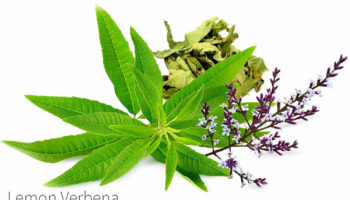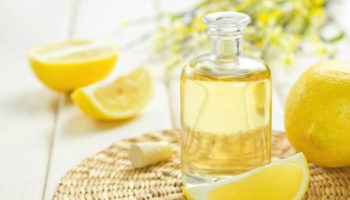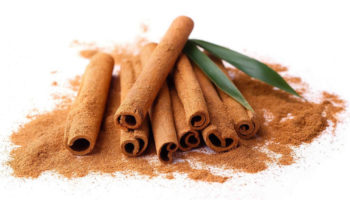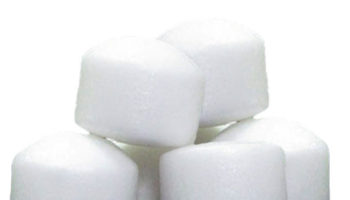Contents
What is alfalfa
Alfalfa (Medicago sativa Linn [Leguminosae]) is the most widely cultivated forage legume and one of the most economically valuable crops throughout the world and has been planted for more than two thousand years in China 1. Because alfalfa is highly productive, stress tolerant, and a valuable forage crop for livestock, alfalfa is commonly known as the “father of all foods” (al-fal-fa) 2. In America, alfalfa has been extensively cultivated since the arrival of Europeans. Alfalfa has been grown for a variety of purposes such as soil improvement, animal feed and medicinal uses 3.
Alfalfa is a cool season perennial legume living from three to twelve years, depending on variety and climate. The mature alfalfa plant is characterized by a strong taproot. This taproot may eventually surpass 6 m or more in length with several to many lateral roots connected at the crown when M. sativa is grown in deep, well drained, moist soils. The crown, a complex structure near the soil surface, has perennial meristem activity, producing buds that develop into stems. Tri- or multi-foliolate leaves form alternately on the stem, and secondary and tertiary stems can develop from leaf axils. A plant in a typical forage production field has between 5 and 15 stems and can reach nearly 1 m in height. Flowers vary in color yet purple, variegated, yellow, cream and white are the most common. After pollination, these flowers most commonly produce spiral-shaped seed pods.
Alfalfa sprouts are often consumed as vegetable salad. Its leaves or seeds are also sold as bulk powdered herb, capsules, and tablets for nutritional supplement in health food stores 4. The extracts from alfalfa sprouts, leaves, and roots have been indicated to be helpful in lowering cholesterol levels in animal and human studies 5, 6, 7. In addition, traditional medicinal use of alfalfa sprouts or leaves includes treatment of arthritis, kidney problems, and boils 8, 9. However, these treatments still need to be scientifically examined.
Additionally, alfalfa is an important source of nectar and pollen for honeybees in several locations around the world, including Al-Ahsa, Saudi Arabia 10. Alfalfa is a cross-pollinated plant, and pollination occurs with the help of insects, wind, and other external elements. The honeybees Apis mellifera L. and A. florea F. were found to be the most active pollinators in alfalfa flowers 11.
Table 1. Alfalfa grass (seeds sprouted) nutrition facts
Nutrient | Unit | Value per 100 g | cup 33 g | tbsp 3 g | |||||||||||||||
|---|---|---|---|---|---|---|---|---|---|---|---|---|---|---|---|---|---|---|---|
| Approximates | |||||||||||||||||||
| Water | g | 92.82 | 30.63 | 2.78 | |||||||||||||||
| Energy | kcal | 23 | 8 | 1 | |||||||||||||||
| Protein | g | 3.99 | 1.32 | 0.12 | |||||||||||||||
| Total lipid (fat) | g | 0.69 | 0.23 | 0.02 | |||||||||||||||
| Carbohydrate, by difference | g | 2.10 | 0.69 | 0.06 | |||||||||||||||
| Fiber, total dietary | g | 1.9 | 0.6 | 0.1 | |||||||||||||||
| Sugars, total | g | 0.20 | 0.07 | 0.01 | |||||||||||||||
| Minerals | |||||||||||||||||||
| Calcium, Ca | mg | 32 | 11 | 1 | |||||||||||||||
| Iron, Fe | mg | 0.96 | 0.32 | 0.03 | |||||||||||||||
| Magnesium, Mg | mg | 27 | 9 | 1 | |||||||||||||||
| Phosphorus, P | mg | 70 | 23 | 2 | |||||||||||||||
| Potassium, K | mg | 79 | 26 | 2 | |||||||||||||||
| Sodium, Na | mg | 6 | 2 | 0 | |||||||||||||||
| Zinc, Zn | mg | 0.92 | 0.30 | 0.03 | |||||||||||||||
| Vitamins | |||||||||||||||||||
| Vitamin C, total ascorbic acid | mg | 8.2 | 2.7 | 0.2 | |||||||||||||||
| Thiamin | mg | 0.076 | 0.025 | 0.002 | |||||||||||||||
| Riboflavin | mg | 0.126 | 0.042 | 0.004 | |||||||||||||||
| Niacin | mg | 0.481 | 0.159 | 0.014 | |||||||||||||||
| Vitamin B-6 | mg | 0.034 | 0.011 | 0.001 | |||||||||||||||
| Folate, DFE | µg | 36 | 12 | 1 | |||||||||||||||
| Vitamin B-12 | µg | 0.00 | 0.00 | 0.00 | |||||||||||||||
| Vitamin A, RAE | µg | 8 | 3 | 0 | |||||||||||||||
| Vitamin A, IU | IU | 155 | 51 | 5 | |||||||||||||||
| Vitamin E (alpha-tocopherol) | mg | 0.02 | 0.01 | 0.00 | |||||||||||||||
| Vitamin D (D2 + D3) | µg | 0.0 | 0.0 | 0.0 | |||||||||||||||
| Vitamin D | IU | 0 | 0 | 0 | |||||||||||||||
| Vitamin K (phylloquinone) | µg | 30.5 | 10.1 | 0.9 | |||||||||||||||
| Lipids | |||||||||||||||||||
| Fatty acids, total saturated | g | 0.069 | 0.023 | 0.002 | |||||||||||||||
| Fatty acids, total monounsaturated | g | 0.056 | 0.018 | 0.002 | |||||||||||||||
| Fatty acids, total polyunsaturated | g | 0.409 | 0.135 | 0.012 | |||||||||||||||
| Fatty acids, total trans | g | 0.000 | 0.000 | 0.000 | |||||||||||||||
| Cholesterol | mg | 0 | 0 | 0 | |||||||||||||||
| Other | |||||||||||||||||||
| Caffeine | mg | 0 | 0 | 0 | |||||||||||||||
Alfalfa traditional medicine uses
Alfalfa has a long tradition of use as Ayurvedic and homoeopathic medicine in central nervous and digestive system disorders, and for the treatment of various other ailments 13. Traditionally, alfalfa is used to improve the memory, to cure kidney pain, cough, sore muscles, as a rejuvenator, antidiabetic, antioxidant, anti-inflammatory, antifungal, anti-asthmatic, antimicrobial, diuretic, galactagogue and in central nervous system (CNS) disorders 14. Alfalfa has been used by the Chinese since the sixth century to treat kidney stones, fever, gravel, dysuria and to relieve fluid retention and swelling. Ancient Indian Ayurvedic physicians used alfalfa to treat ulcers, arthritis pain and fluid retention. In Mexico alfalfa is believed to improve the memory, to cure sore muscles and inflammation. Early Americans used alfalfa to treat arthritis, boils, cancer, scurvy, and urinary and bowel problems. In Iraq, alfalfa is used in arthritis. In Turkey it is used as cardiotonic and to treat scurvy and arthritis 15.
Moreover, it is considered beneficial in bladder disorders, blood clotting disorders, boils, cough, diuresis, gastrointestinal tract disorders, breast cancer, cervical cancer, kidney disorders, prostate disorders, appetite stimulation, inflammation, increasing breast milk, asthma, indigestion, insect bites, jaundice, menopausal symptoms, allergies, increasing excretion of neutral steroids and bile acids in fecal matter, nutritional support, stomach ulcers, skin damage from radiation, galactagogue, increasing peristaltic action of the stomach and bowels, thrombocytopenic purpura, uterine stimulant, rheumatoid arthritis, scurvy, vitamin supplementation (vitamins A, C, E, K) and wound healing 14.
Alfalfa pharmacological and clinical reports
Alfalfa is used in traditional medicine due to being high in protein, calcium, and vitamins and also its low percentage of cellulose 16. Alfalfa is also traditionally used to treat diabetes 17. It contains many enzymes, including amylase, invertase, and pectinase, so it can be used as digestive aids 18. More than 20% of dry weight of alfalfa is protein, and it is the best source of Arg, His, Asp, Phe, and Cys amino acids. Alfalfa has an extremely high nutritive value; it includes vitamins A, B1, B6, B12, C, D, E, and K, niacin, pantothenic acid, biotin, folic acid, minerals, protein, and beneficial saponins 19, 20.
Alfalfa consists of saponins that have heart protective effects due to cholesterol reduction, and these agents can absorb in digestive system in body 21. Saponins inhibit cholesterol esterase and acetyl coenzyme and carboxylase enzymes, thus, inhibiting fatty acid synthesis, which increases the ratio of HDL “good” cholesterol to LDL “bad” cholesterol, and it can be effective in reducing cardiovascular complications of diabetes 22. Saponins decrease intestinal absorption of cholesterol and increase its defecation 23. Hypocholesterolemic activity has been reported for root saponins, when given to monkeys receiving a high-cholesterol diet 24. Several other studies indicate that the ingestion of alfalfa reduces cholesterol absorption and atherosclerotic plaque formation in animals 25, 26, 27. In a study, the ability of alfalfa plant to reduce liver cholesterol accumulation in cholesterol-fed rats was enhanced by the removal of saponins. Therefore, alfalfa saponins appear to play an important role in neutral steroid excretion, but are not essential for increasing bile acid excretion 28. Alfalfa saponins have been shown to decrease cholesterolemia without changing the levels of high density lipoprotein-HDL cholesterol; hence, they reduced the total cholesterol/high density lipoprotein-cholesterol ratio in macaque monkeys. Furthermore, they decreased intestinal absorption of cholesterol, increased fecal excretion of endogenous and exogenous neutral steroids and bile acids, and decreased the percentage distribution of fecal deoxycholic and lithocholic acids 29.
Khaleel et al. 30 performed a study and showed that highest saponin content extract just before fruiting stage (free from both coumestrol and canavanine) of M. sativa exhibited significant hypocholesterolemic and antiatherosclerotic activity. This study proved that alfalfa was found to safely reduce natural cholesterol and to possess a strong anti-atherosclerotic activity. The extracts produced the most significant decrease in total cholesterol and LDL-cholesterol by 85.1 and 88%, respectively, of the corresponding levels in hypercholesterolemic rabbits. This decrease was more significant than that produced by gemfibrozil (73 and 74%) upon concomitant administration with a cholesterol enriched diet using the same animal model at the tested dose level. Moreover, it was also observed that all alfalfa preparations produced significant antioxidant properties.
Alfalfa is a rich source of vitamins and phytoestrogens, so it is used as a food additive in many developed countries 31. Extract of the leaves from M. sativa has been shown to be used in treatment of neurovegetative menopausal symptoms in women. Hot flushes and night sweating completely disappeared with the treatment of M. sativa extract. The plant product induced a significant increase in prolactin and thyroid stimulating hormone response to thyroid releasing hormone. Basal levels of estradiol, luteinizing hormone, follicle stimulating hormone, prolactin, and thyroid stimulating hormone were unchanged. Thus, alfalfa suggested having a central slight antidopaminergic action without side effects 32. In addition, because of its mentioned therapeutic effects, it is used as herbal drug in many countries. Previous animal studies (rabbits and rats) showed that adding alfalfa seed in animal diet reduced triglycerides and LDL, improved HDL levels, and decreased blood glucose 33, 34. Therefore, alfalfa leaves are traditionally used in South Africa as an effective treatment for diabetes 35, 36. Alfalfa causes stimulation of insulin secretion. It also improves insulin function in reducing the plasma glucose, but its effects on the blood lipids have not been investigated widely 37. In a laboratory study involving lab rats induced to have Type 1 diabetes (insulin deficiency), rats that were fed aqueous extract of alfalfa significantly reduces blood sugar levels, triglycerides, cholesterol, LDL “bad” cholesterol and increased HDL “good” cholesterol levels 22. Previous test tube study reported increase of insulin secretion up to 3-folds in the presence of alfalfa extraction 38. High concentrations of manganese in alfalfa have been reported as a possible reason of hypoglycemia 39. Oral administration of alfalfa seeds triggered reduction of blood lipoprotein level in diabetics. Alfalfa is a phytoestrogens source 40. Phytoestrogens are nonsteroidal plant-derived compounds with biological activity similar to estrogen 41. Phytoestrogens increased liver lipid biosynthesis from glucose, so it decreased glucose concentration in blood and improved repair and turnover rate of cell membrane. The results of this study 42 indicate that the diameter and number of pancreatic islets were significantly increased in diabetic rats treated with the extract compared with diabetic controls.
Furthermore in the same lab rat study 22 oral administration of alfalfa extract (with 250 mg/kg dose) decreased liver enzyme concentration in blood, and this decrease is more significant in 500 mg/kg dose, so alfalfa extraction causes reduction of liver damage. The study author concluded that alfalfa extract causes reduction of liver enzymes that is maybe due to improved diabetes and inhibition of lipid peroxidation 22.
Recently, Kundan and Anupam have shown that alfalfa exhibited significant antioxidant and cerebroprotective effects against ischemia and reperfusion insult in mice 43. Pretreatment with alfalfa extract (100 or 200 mg/kg orally) markedly reduced cerebral infarct size, xanthine oxidase, superoxide anion and thiobarbituric acid-reactive substance levels, significantly restored reduced glutathione, superoxide dismutase and total tissue sulfhydryl levels and attenuated impairment in short-term memory and motor coordination. In addition, alfalfa directly scavenged free radicals generated against a stable radical 1,1-diphenyl-2-picrylhydrazyl and, superoxide anion radicals generated in phenazine methosulfate-nicotinamide adenine dinucleotide systems, and also inhibited xanthine dehydrogenase/xanthine oxidase conversion and resultant superoxide anion production.
Alfalfa toxicity and side effects
Both M. sativa seed and herb have been reported to induce a systemic lupus erythematosus (SLE)-like syndrome in female monkeys 44, 45. This activity has been attributed to canavanine, a non-protein amino acid constituent, which has been found to have effects on human immunoregulatory cells in vitro 46. Re-activation of quiescent SLE in humans has been associated with the ingestion of alfalfa tablets which, following analysis, were found to contain canavanine 47. It was not stated whether the tablets contained seed or herb material. Canavanine is known to be toxic to all animal species because it is a structural analogue of arginine and may interfere with the binding of this amino acid to enzymes and its incorporation into proteins. Alfalfa seeds are reported to contain substantial quantities of canavanine (8.33-13.6 mg/kg), whereas the herb is stated to contain amounts that are considerably less 48.
“Auto-immune diseases” such as multiple sclerosis (MS), lupus (systemic lupus erythematosus, SLE), rheumatoid arthritis (RA), or other conditions: Alfalfa might cause the immune system to become more active, and this could increase the symptoms of auto-immune diseases. If you have an auto-immune condition, it’s best to avoid using alfalfa until more is known.
Kidney transplant: There is one report of a kidney transplant rejection following the three-month use of a supplement that contained alfalfa and black cohosh. This outcome is more likely due to alfalfa than black cohosh. There is some evidence that alfalfa can boost the immune system and this might make the anti-rejection drug cyclosporine less effective.
Pancytopenia has been associated with human ingestion of ground alfalfa seeds (80-160 g/day), which were taken to lower plasma cholesterol concentrations 29. Dietary studies using alfalfa top saponins in the diet of rats and monkeys showed no evidence of toxicity and serum lipid concentrations were lowered 49. In addition, when alfalfa top saponins were given to cholesterol-fed animals, a reduction in serum lipid concentrations was observed. Alfalfa top saponins are reported to be free of the SLE-inducing substance that is present in the seeds 50. Negative results were documented for alfalfa when tested for mutagenicity using Salmonella strains TA98 and TA100 51.
Consultation is a necessity for a health care practitioner prior to prescribe use of alfalfa if undergoing hormone replacement therapy or taking birth control medication or using blood thinners 44.
Hormone-sensitive condition such as breast cancer, uterine cancer, ovarian cancer, endometriosis, or uterine fibroids: Alfalfa might have the same effects as the female hormone estrogen. If you have any condition that might be made worse by exposure to estrogen, don’t use alfalfa.
Diabetes: Alfalfa might lower blood sugar levels. If you have diabetes and take alfalfa, monitor your blood sugar levels closely.
Alfalfa might lower the body’s absorption of dietary iron.
Alfalfa might interfere with the way the body takes in and uses vitamin E.
Alfalfa and Medicine Interactions
Medications that decrease the immune system (Immunosuppressants)
Alfalfa might increase the immune system. By increasing the immune system, alfalfa might decrease the effectiveness of medications that decrease the immune system.
Some medications that decrease the immune system include azathioprine (Imuran), basiliximab (Simulect), cyclosporine (Neoral, Sandimmune), daclizumab (Zenapax), muromonab-CD3 (OKT3, Orthoclone OKT3), mycophenolate (CellCept), tacrolimus (FK506, Prograf), sirolimus (Rapamune), prednisone (Deltasone, Orasone), corticosteroids (glucocorticoids), and others.
Medications that increase sensitivity to sunlight (Photosensitizing drugs)
Some medications can increase sensitivity to sunlight. Large doses of alfalfa might also increase your sensitivity to sunlight. Taking alfalfa along with medication that increase sensitivity to sunlight could make you even more sensitive to sunlight, increasing the chances of sunburn, blistering or rashes on areas of skin exposed to sunlight. Be sure to wear sunblock and protective clothing when spending time in the sun.
Some drugs that cause photosensitivity include amitriptyline (Elavil), Ciprofloxacin (Cipro), norfloxacin (Noroxin), lomefloxacin (Maxaquin), ofloxacin (Floxin), levofloxacin (Levaquin), sparfloxacin (Zagam), gatifloxacin (Tequin), moxifloxacin (Avelox), trimethoprim/sulfamethoxazole (Septra), tetracycline, methoxsalen (8-methoxypsoralen, 8-MOP, Oxsoralen), and Trioxsalen (Trisoralen).
Birth control pills (Contraceptive drugs)
Some birth control pills contain estrogen. Alfalfa might have some of the same effects as estrogen. However, alfalfa is not as strong as the estrogen in birth control pills. Taking alfalfa along with birth control pills might decrease the effectiveness of birth control pills. If you take birth control pills along with alfalfa, use an additional form of birth control such as a condom.
Some birth control pills include ethinyl estradiol and levonorgestrel (Triphasil), ethinyl estradiol and norethindrone (Ortho-Novum 1/35, Ortho-Novum 7/7/7), and others.
Estrogens
Large amounts of alfalfa might have some of the same effects as estrogen. However even large amounts of alfalfa are not as strong as estrogen pills. Taking alfalfa along with estrogen pills might decrease the effects of estrogen pills.
Some estrogen pills include conjugated equine estrogens (Premarin), ethinyl estradiol, estradiol, and others.
Medications for diabetes (Antidiabetes drugs)
Alfalfa might decrease blood sugar. Diabetes medications are also used to lower blood sugar. Taking alfalfa along with diabetes medications might cause your blood sugar to go too low. Monitor your blood sugar closely. The dose of your diabetes medication might need to be changed.
Some medications used for diabetes include glimepiride (Amaryl), glyburide (DiaBeta, Glynase PresTab, Micronase), insulin, pioglitazone (Actos), rosiglitazone (Avandia), and others.
Contraindications
People with a history of lupus or a family history of systemic lupus erythematosus should avoid alfalfa supplements 44, 45, 52.
Alfalfa seeds should not be ingested during pregnancy or lactation 52. There is some evidence that alfalfa may act like estrogen, and this might affect the pregnancy.
- J. Bouton. The economic benefits of forage improvement in the United States. Euphytica, 154 (2007), pp. 263-270[↩]
- Z.P. Liu, T.L. Chen, L.C. Ma, Z. Zhao, P.X. Zhao, Z.B. Nan, Y.R. Wang. Global transcriptome sequencing using the Illumina platform and the development of EST-SSR markers in autotetraploid alfalfa. PLoS One, 8 (2013), Article e83549[↩]
- Steppler HA. (1987). ICRAF and a decade of agroforestry development. In: Steppler HA, Nair PKR, eds. Agroforestry: A Decade of Development. Nairobi, Kenya: International Council for Research in Agroforestry, pp. 13–24.[↩]
- Brinker F. Herb contraindications and drug interactions. In: Stodart N, editor. Eclectic Medical Publications. Oregon: Sandy; 2001. p. 211.[↩]
- Story JA, LePage SL, Petro MS, West LG, Cassidy MM, Lightfoot FG, Vahouny GV. Interactions of alfalfa plant and sprout saponins with cholesterol in vitro and in cholesterol-fed rats. Am J Clin Nutr. 1984;39:917–929. https://www.ncbi.nlm.nih.gov/pubmed/6720621[↩]
- Molgaard J, von Schenck H, Olsson AG. Alfalfa seeds lower low density lipoprotein cholesterol and apolipoprotein B concentrations in patients with type II hyperlipoproteinemia. Atherosclerosis. 1987;65:173–179. doi: 10.1016/0021-9150(87)90019-0. https://www.ncbi.nlm.nih.gov/pubmed/3606731[↩]
- Colodny LR, Montgomery A, Houston M. The role of esterin processed alfalfa saponins in reducing cholesterol. J Am Nutraceutical Assoc. 2001;3:1–10.[↩]
- Foster S, Duke JA. Eastern and Central North America. In: Peterson RT, editor. A Field Guide to Medicinal Plants and Herbs. New York: Houghton Mifflin; 1990. p. 211.[↩]
- Barnes J, Anderson LA, Phillipson JD. A guide for health-care professionals. In: Barnes J, Anderson LA, Phillipson JD, editor. Herbal Medicines. London: Pharmaceutical Press; 2002. p. 38.[↩]
- E.A. Taha. A study on nectar and pollen sources for honeybee Apis mellifera L. in Al-Ahsa Saudi Arabia. J. Entomol. Zool. Stud., 3 (2015), pp. 272-277.[↩]
- E.A. Taha, M. Al-Abdulsalam, S. AL-Kahtani. Insect pollinators and foraging behavior of honey bees on alfalfa (Medicago sativa L.) in Saudi Arabia. J. Kansas Entomol. Soc., 89 (2016), pp. 92-99.[↩]
- United States Department of Agriculture Agricultural Research Service. USDA Branded Food Products Database. https://ndb.nal.usda.gov/ndb/search/list[↩]
- Phytochemical and pharmacological potential of Medicago sativa: A review. Kundan Singh Bora & Anupam Sharma. Pharmaceutical Biology Vol. 49 , Iss. 2,2011. http://www.tandfonline.com/doi/full/10.3109/13880209.2010.504732[↩]
- DerMarderosian A, Liberti L, Beutler JA, Grauds C Tatro, DS, Cirigliano M, DeSilva D Jr. (2005). Alfalfa. Review of Natural Products: Facts and comparisons. Alphen aan den Rijn, the Netherlands: Wolters Kluwer Health.[↩][↩]
- Michael A, Francine G, Matthias H. (2007). Plants traditionally used in age related brain disorders–A survey of ethnobotanical literature. J Ethnopharmacol, 113, 363–381.[↩]
- Rashmi R, Sarkar M, Vikramaditya. CULTIVATION OF ALFALFA (MEDICAGO SATIVA L). Ancient Science of Life. 1997;17(2):117-119. https://www.ncbi.nlm.nih.gov/pmc/articles/PMC3331095/pdf/ASL-17-117.pdf[↩]
- Evaluation of Medicago sativa L. sprouts as antihyperlipidemic and antihyperglycemic agent. Pak J Pharm Sci. 2015 Nov;28(6):2061-74. https://www.ncbi.nlm.nih.gov/pubmed/26639479[↩]
- Elakovich SD, Hampton JM. Analysis of coumestrol, a phytoestrogen, in alfalfa tablets sold for human consumption. J Agric Food Chem. 1984 Jan-Feb;32(1):173–175. https://www.ncbi.nlm.nih.gov/pubmed/6707329[↩]
- Zargari A. Therapeutic Plants. 1st. Tehran: Tehran University Press; 1996. pp. 642–646.[↩]
- Hong Y-H, Chao W-W, Chen M-L, Lin B-F. Ethyl acetate extracts of alfalfa (Medicago sativa L.) sprouts inhibit lipopolysaccharide-induced inflammation in vitro and in vivo. Journal of Biomedical Science. 2009;16(1):64. doi:10.1186/1423-0127-16-64. https://www.ncbi.nlm.nih.gov/pmc/articles/PMC2720939/[↩]
- Colodny LR. Alfalfa saponins may help reduce cholesterol levels. J Am Nut Ass. 2001;3:1–10.[↩]
- Amraie E, Farsani MK, Sadeghi L, Khan TN, Babadi VY, Adavi Z. The effects of aqueous extract of alfalfa on blood glucose and lipids in alloxan-induced diabetic rats. Interventional Medicine & Applied Science. 2015;7(3):124-128. doi:10.1556/1646.7.2015.3.7. https://www.ncbi.nlm.nih.gov/pmc/articles/PMC4609025/[↩][↩][↩][↩]
- Jackson IM. Abundance of immunoreactive thyrotropin-releasing hormone-like material in the alfalfa plant. Endocrinology. 1981 Jan;108(1):344–346. https://www.ncbi.nlm.nih.gov/pubmed/6780314[↩]
- Malinow MR, McLaughlin KGO, Livingston AL. (1977b). Prevention of elevated cholesterolemia in monkeys by alfalfa saponins. Steroids, 29, 105–110.[↩]
- Cohen BI, Mosbach EH, Matoba N, Suh SO, McSherry CK. (1990). The effect of alfalfa-corn diets on cholesterol metabolism and gallstones in prairie dogs. Lipids, 25, 143–148. https://www.ncbi.nlm.nih.gov/pubmed/2159098[↩]
- Malinow MR, McLaughlin P, Papworth L, Stafford C, Kohler GO, Livingston AL, Cheeke PR. (1977a). Effect of alfalfa saponins on intestinal cholesterol absorption in rats. Am J Clin Nutr, 30, 2061–2067. http://ajcn.nutrition.org/content/30/12/2061.long[↩]
- Wilcox EB, Galloway LS. (1961). Serum and liver cholesterol total lipids and lipid phosphorus levels of rats under various dietary regimes. Am J Clin Nutr, 9, 236–243.[↩]
- Story JA, LePage SL, Petro MS, West LG, Cassidy MM, Lightfoot FG, Vahouny GV. (1984). Interactions of alfalfa plant and sprout saponins with cholesterol in vitro and in cholesterol-fed rats. Am J Clin Nutr, 39, 917–929. http://ajcn.nutrition.org/content/39/6/917.long[↩]
- Malinow MR, Bardana EJJ, Goodnight SHJ. (1981a). Pancytopenia during ingestion of alfalfa seeds. Lancet, 1, 615. http://www.thelancet.com/journals/lancet/article/PIIS0140-6736(81)92063-8/abstract[↩][↩]
- Khaleel AEG, Mohamed Z, El-Maraghy SA, Hifnawy MS, Abdel-Sattar E. (2005). Study of hypocholesterolemic and antiatherosclerotic properties of Medicago sativa L. cultivated in Egypt. Yaowu Shipin Fenxi, 13, 212–218.[↩]
- Barens DK, Sheaffer C. Alfalfa. Agriculture. 1995;2:205–216.[↩]
- Minerva G. (1998). Treatment of neurovegetative menopausal symptoms with a phytotherapeutic agent. Universita degli Studi-Siena, 50, 207–211.[↩]
- Asgary S, Moshtaghian J, Hosseini M, Siadat H. Effects of alfalfa on lipoproteins and fatty streak formation in hypercholesterolemic rabbits. Pak J Pharm Sci. 2008 Oct;21(4):460–464. https://www.ncbi.nlm.nih.gov/pubmed/18930871[↩]
- Mehranjani MS, Shariatzadeh MA, Desfulian AR, Noori M, Abnosi MH, Moghadam ZH. Effects of Medicago sativa on nephropathy in diabetic rats. Indian J Pharm Sci. 2007;69:768–772.[↩]
- Lust JB. The Herb Book. London: Bantam Books Inc.; 1986.[↩]
- Gray AM, Flatt PR. The traditional plant treatment, Sambucus nigra (elder), exhibits insulin-like and insulin-releasing actions in vitro. J Nutr. 1997;78:325–334. http://jn.nutrition.org/content/130/1/15.long[↩]
- Winiarska H, Dworacka M, Borowska M, Bobkiewicz-Kozłowska T, Gorecki P. The effects of plant extracts of Medicago sativa and Trigonella foenum-graceum on postprandial glucose levels in type 2 diabetic rats. Herba Polonica. 2007;53:34–44.[↩]
- Characterization of a novel glucose-responsive insulin-secreting cell line, BRIN-BD11, produced by electrofusion. McClenaghan NH, Barnett CR, Ah-Sing E, Abdel-Wahab YH, O’Harte FP, Yoon TW, Swanston-Flatt SK, Flatt PR. Diabetes. 1996 Aug; 45(8):1132-40. http://diabetes.diabetesjournals.org/content/45/8/1132.long[↩]
- Manganese-induced hypoglycaemia. RUBENSTEIN AH, LEVIN NW, ELLIOTT GA. Lancet. 1962 Dec 29; 2(7270):1348-51. https://www.ncbi.nlm.nih.gov/pubmed/13982963/[↩]
- Dietary phytoestrogens. Kurzer MS, Xu X. Annu Rev Nutr. 1997; 17():353-81. http://www.annualreviews.org/doi/full/10.1146/annurev.nutr.17.1.353[↩]
- Soya–a dietary source of the non-steroidal oestrogen equol in man and animals. Axelson M, Sjövall J, Gustafsson BE, Setchell KD. J Endocrinol. 1984 Jul; 102(1):49-56. https://www.ncbi.nlm.nih.gov/pubmed/6539804/[↩]
- Farsani MK, Amraie E, Kavian P, Keshvari M. Effects of aqueous extract of alfalfa on hyperglycemia and dyslipidemia in alloxan-induced diabetic Wistar rats. Interventional Medicine & Applied Science. 2016;8(3):103-108. doi:10.1556/1646.8.2016.3.5. https://www.ncbi.nlm.nih.gov/pmc/articles/PMC5283756/[↩]
- Kundan SB, Anupam S. (2010). Evaluation of antioxidant and cerebroprotective effect of Medicago sativa Linn. against ischemia and reperfusion insult. eCAM, 1–9.[↩]
- Barnes J, Anderson LA, Philipson JD. (2007). Herbal Medicines, third edition. London: Pharmaceutical Press.[↩][↩][↩]
- Boon H, Smith MJ. (2004). The Complete Natural Medicine Guide to the 50 Most Common Medicinal Herbs, second edition. Toronto (ON): Robert Rose.[↩][↩]
- Jorge AV, Antonio I, Luis L, Donato AS. (1985). Effects of l-canavanine on T cells may explain the induction of systemic lupus erythematosus by alfalfa. Arthritis Rheum, 28, 52–57.[↩]
- Roberts JL, Hayashi JA. (1983). Exacerbation of SLE associated with alfalfa ingestion. New Engl J Med, 308, 1361.[↩]
- Natelson S. (1985). Canavanine in alfalfa (Medicago sativa). Experientia, 41, 257–259.[↩]
- Malinow MR, McNulty WP, Houghton DC, Kessler S, Stenzel P, Goodnight SHJ, Bardana EJJ, Palotay JL, McLaughlin P, Livingston AL. (1982a). Lack of toxicity of alfalfa saponins in Cynomolgus macaques. J Medical Primatol, 11, 106–118.[↩]
- Malinow MR, McNulty WP, McLaughlin P, Stafford C, Burns AK, Livingston AL, Kohler GO. (1981c). The toxicity of alfalfa saponins in rats. Food Cosmet Toxicol, 19, 443–445.[↩]
- White RD, Krumperman PH, Cheeke PR, Buhler DR. (1983). An evaluation of acetone extracts from six plants in the Ames mutagenicity test. Toxicol Lett, 15, 25–31.[↩]
- Brinker F. (2001). Herb Contraindications and Drug Interactions, third edition. Sandy, OR: Eclectic Medical.[↩][↩]





